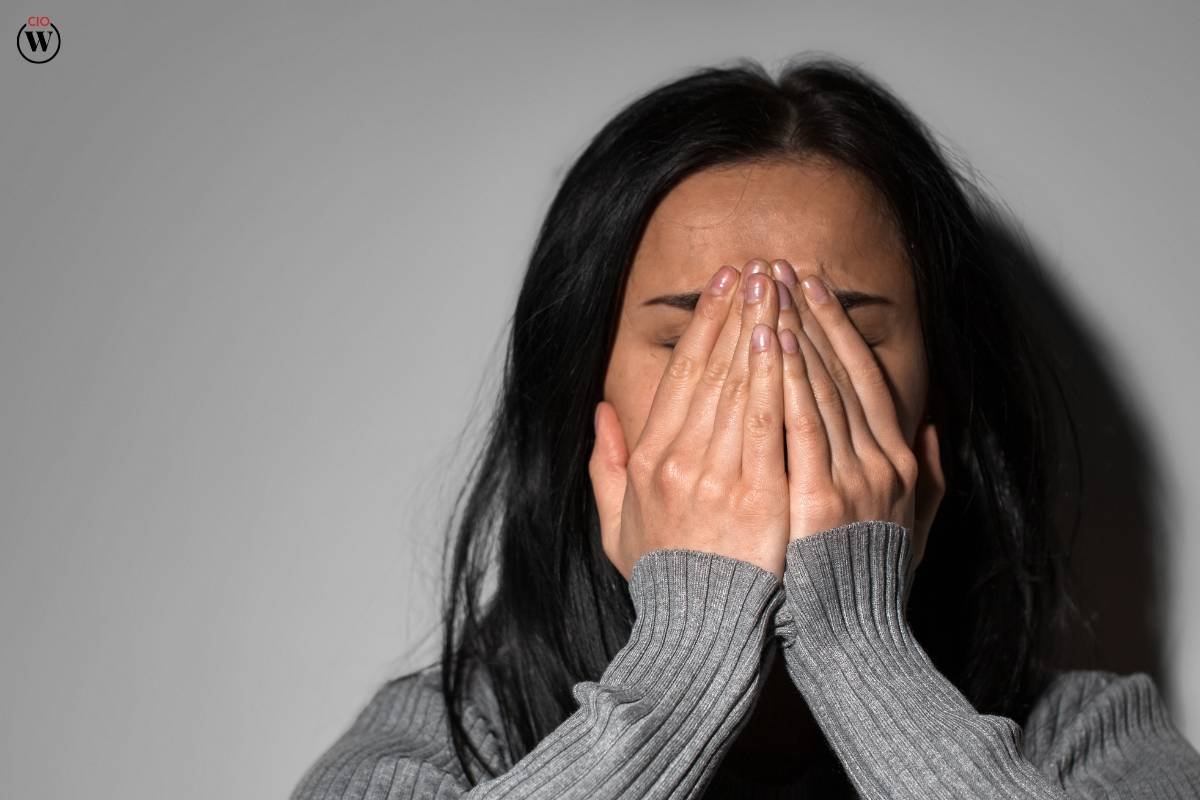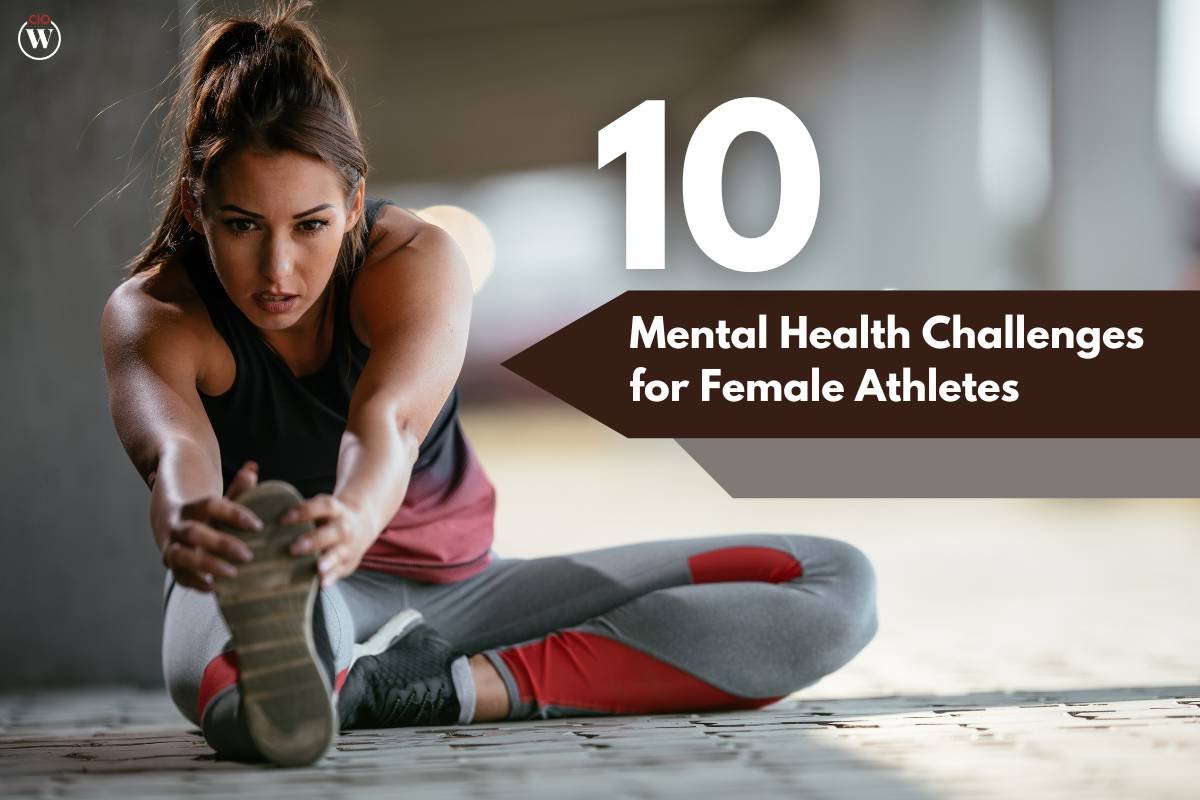Female athletes face not only physical challenges in sports but also significant mental health issues. These challenges can impact their well-being and performance, making it important to address them properly. From performance anxiety and body image concerns to recovering from injuries and dealing with gender stereotypes, female athletes experience unique stressors that need careful attention and support. Understanding and addressing these mental health challenges is crucial for creating a supportive and inclusive environment in sports. This article explores 10 key mental health challenges for female athletes and emphasizes the importance of providing strong support systems to help them overcome these obstacles.
Let’s take a look at mental health challenges for female athletes:
1. Performance Anxiety
Performance anxiety is a common challenge in the realm of mental health challenges for female athletes, marked by fear of failure, perfectionism, and the pressure to meet expectations. The constant scrutiny and evaluation can lead to stress and affect their ability to perform at their best. Managing performance anxiety involves psychological strategies such as visualization, mindfulness, and cognitive-behavioral techniques to enhance mental resilience.
2. Body Image Issues

Body image concerns are prevalent among female athletes, influenced by media portrayals of the ideal athlete’s physique and the pressure to conform to certain standards. These challenges, categorized under mental health challenges for female athletes, can lead to disordered eating behaviors, low self-esteem, and negative psychological outcomes. Addressing these body image issues involves promoting positive self-talk, and body acceptance, and educating athletes on nutrition and healthy weight management.
3. Injury Rehabilitation
Injuries pose a significant challenge for athletes, affecting not just their physical well-being but also the mental health challenges for female athletes. Female athletes often feel frustration, anxiety, and depression during rehabilitation, worrying about losing fitness, setbacks in performance, and their future in sports. Providing thorough support during rehabilitation is crucial, including access to mental health professionals, to aid recovery and prevent lasting psychological impacts.
4. Gender Stereotypes and Discrimination
Female athletes often face mental health challenges for female athletes such as gender stereotypes and discrimination, which can contribute to stress, anxiety, and a sense of marginalization. These challenges may manifest in unequal opportunities, media representation, and societal perceptions of women in sports. Addressing gender stereotypes involves promoting gender equality, challenging biases, and creating inclusive environments where female athletes feel valued and respected.
5. Social Isolation
The demanding training schedules and travel commitments of elite athletes can lead to social isolation, particularly for female athletes balancing sports careers with personal relationships and social life. Feelings of loneliness and disconnectedness, which are part of the mental health challenges for female athletes, can impact mental health and overall well-being. Encouraging social support networks, team bonding activities, and fostering work-life balance are crucial in mitigating social isolation among female athletes. Building a strong sense of community within sports teams can help alleviate feelings of loneliness and disconnectedness, enhancing mental health and overall well-being among female athletes.
6. Pressure to Balance Multiple Roles

Female athletes often face the challenge of juggling multiple roles, including athlete, student, professional, and caregiver, which can lead to stress and burnout. Balancing training commitments with academic or professional responsibilities can be overwhelming, impacting mental health challenges for female athletes and their performance. It’s crucial to support female athletes in developing time management skills, and prioritization strategies, and providing access to resources such as flexible scheduling and academic support to maintain their mental well-being.
7. Transition and Retirement
The transition out of sports and retirement can be a challenging period for female athletes, marked by identity loss, loss of social connections, and uncertainty about the future. These transitions can trigger anxiety, depression, and feelings of loss related to mental health challenges for female athletes. Offering career transition support, mentoring programs, and mental health counseling can help them adjust more smoothly to life after sports and build long-term psychological resilience.
8. Pressure to Conform to Feminine Norms
Female athletes may encounter the challenge of conforming to traditional feminine norms while navigating the competitive and often male-dominated sports environment. Balancing femininity with athletic ability can lead to internal conflict and external pressures, affecting self-esteem and mental health. Promoting authenticity, challenging stereotypes, and embracing diverse expressions of femininity are crucial in supporting the mental health of female athletes facing these challenges.
9. Sexual Harassment and Abuse

Sexual harassment and abuse are serious concerns in sports, affecting the mental health and safety of female athletes. Instances of harassment, exploitation, and abuse can lead to trauma, anxiety, and post-traumatic stress disorder (PTSD). Creating safe reporting mechanisms, implementing educational programs on consent and boundaries, and advocating for zero-tolerance policies are essential steps in protecting mental health challenges for female athletes.
10. Stigma Surrounding Mental Health
Despite growing awareness, the stigma surrounding mental health remains a barrier for female athletes seeking support. Fear of judgment, concerns about perceived weakness, and the competitive sports culture can deter athletes from accessing mental health services. Normalizing conversations about mental health, promoting education on psychological well-being, and integrating mental health support into sports programs are crucial in reducing stigma and ensuring comprehensive care for female athletes.
Conclusion
Addressing mental health challenges for female athletes is crucial for their well-being and success in sports. They face issues like performance anxiety, concerns about their body image, recovering from injuries, and handling societal pressures. By providing support, raising awareness, and creating inclusive environments in sports, we can help these athletes manage these challenges better. This approach not only strengthens their mental well-being but also ensures they have the support they need to succeed in their athletic careers.









